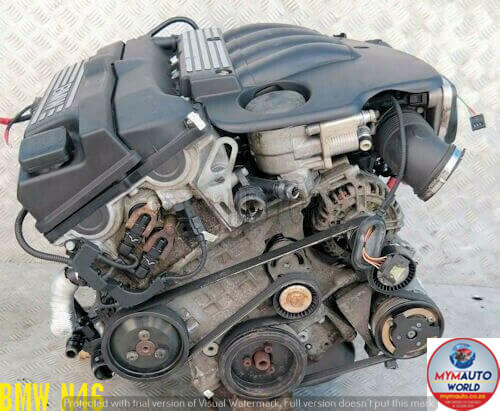Browsing the Engine Market: Tips for Making an Informed Purchase to Fit Your Demands
Understanding your certain engine requirementsâEUR" such as power result, effectiveness, and automobile compatibilityâEUR" can dramatically influence your choice. Additionally, considering the advantages of remanufactured versus new engines brings one more layer of complexity.
Determine Your Engine Needs
Frequently, the initial step in picking the right engine for your application entails an extensive assessment of your details demands. This evaluation needs to encompass numerous factors, consisting of power result, effectiveness, dimension restraints, and intended usage scenarios. Comprehending the operational environment is critical, as engines might do in different ways under differing conditions such as load, elevation, and temperature level.
Moreover, it is necessary to determine the performance metrics that are most critical to your application. If fuel effectiveness is paramount, you might prioritize engines that offer innovative technologies to maximize usage. Alternatively, if rapid velocity or high torque is needed, your focus may shift toward performance-oriented options.
Spending plan factors to consider likewise play a substantial function in establishing engine needs. Assess not just the initial purchase rate yet likewise the lasting costs related to maintenance, fuel, and potential downtime. Additionally, think about the accessibility of parts and solution assistance, as these variables can dramatically affect functional connection.
Inevitably, putting in the time to meticulously specify your engine requirements will certainly allow you to make a more educated decision, making sure that the picked engine aligns effortlessly with your application's details needs and restraints.
Explore Engine Types Available
Having actually developed a clear understanding of your engine needs, the next step is to check out the various engine kinds available in the marketplace. The main groups consist of inner combustion engines, electric engines, and hybrid systems.
Inner combustion engines (ICE) are the most typical type, making use of fuel or diesel to produce power. They can be additional classified into different setups such as inline, V-type, and flat engines, each using various efficiency features and effectiveness.
Electric engines, on the various other hand, use electric energy kept in batteries to drive the vehicle (n46 engine). They are understood for their performance, low discharges, and decreased operating expense. With the growing emphasis on sustainability, electric engines are becoming a popular selection for customers and suppliers alike

Recognizing these kinds will assist you make an informed choice based on your efficiency needs, environmental factors to consider, and spending plan constraints (n46 engine). Each engine kind provides one-of-a-kind benefits, eventually influencing the best choice for your specific application
Take Into Consideration New Vs. Remanufactured
When reviewing engine choices, it is important to read the article consider the benefits and disadvantages of remanufactured versus brand-new engines. New engines are generally developed to initial producer requirements, guaranteeing the current modern technology and performance standards. They typically feature extensive guarantees, giving comfort relating to integrity. Brand-new engines can be considerably extra costly, which may stress your budget.
These engines are disassembled, examined, and rebuilt using brand-new or reconditioned components, ensuring they meet performance standards. Numerous remanufactured engines come with guarantees, although they might not be as considerable as those for brand-new engines.
When making a decision between remanufactured and new,It is important to assess your particular demands and spending plan. A brand-new engine may be the ideal choice if you prioritize sophisticated modern technology and lasting integrity. Alternatively, if you seek value and are comfortable with a somewhat older layout, a remanufactured engine might be appropriate. Ultimately, understanding the distinctions will help you make an enlightened decision that aligns with your needs.
Assess Compatibility With Your Car
Completely examining compatibility with your car is a vital action in the engine selection procedure. Making certain that the engine you choose matches your vehicle's specs can significantly affect long life, efficiency, and security. Begin by consulting your vehicle's proprietor manual, which usually gives important details relating to engine kind, size, and requirements.
Following, consider aspects such as engine mounting points, transmission compatibility, and circuitry harness connections. Various lorry versions might have one-of-a-kind needs that demand specific engine styles, so it is necessary to validate that the engine incorporates effortlessly right into your lorry's framework.
Additionally, take note of the engine's efficiency qualities, consisting of horsepower and torque, to guarantee they line up with your driving needs. If you are considering a changed car or a swap from a various make or model, thorough study is necessary.
Budgeting for Your Acquisition
Once you have validated the compatibility of the engine with your car, the following action entails developing a budget for your purchase. This vital phase needs a this content complete understanding of your economic criteria, as engine rates can rise and fall extensively based upon brand name, kind, and problem.
Begin by looking into the market to acquire insights right into ordinary prices for the specific engine you look for. Think about both pre-owned and new alternatives, along with remanufactured engines, which may provide a balance in between price and dependability. Bear in mind additional costs, such as delivery, setup, and any required alterations, which can significantly influence your general budget.
Lastly, make up any type of potential service warranties or guarantees that might be included in the acquisition. A well-defined budget that takes into consideration both immediate costs and long-lasting value will equip you to make an informed decision that straightens with your economic ability and vehicle efficiency goals.
Conclusion
In conclusion, navigating the engine market necessitates a thorough examination of certain requirements, consisting of engine type, compatibility, and economic considerations. Focusing on high quality and warranty alternatives will better improve the purchasing decision, eventually leading to a much more sufficient and informed engine procurement process.

Think about both new and secondhand alternatives, as well as remanufactured engines, which may offer an equilibrium between expense and integrity.In conclusion, browsing the engine market demands an extensive assessment of details requirements, including engine kind, compatibility, and economic considerations.